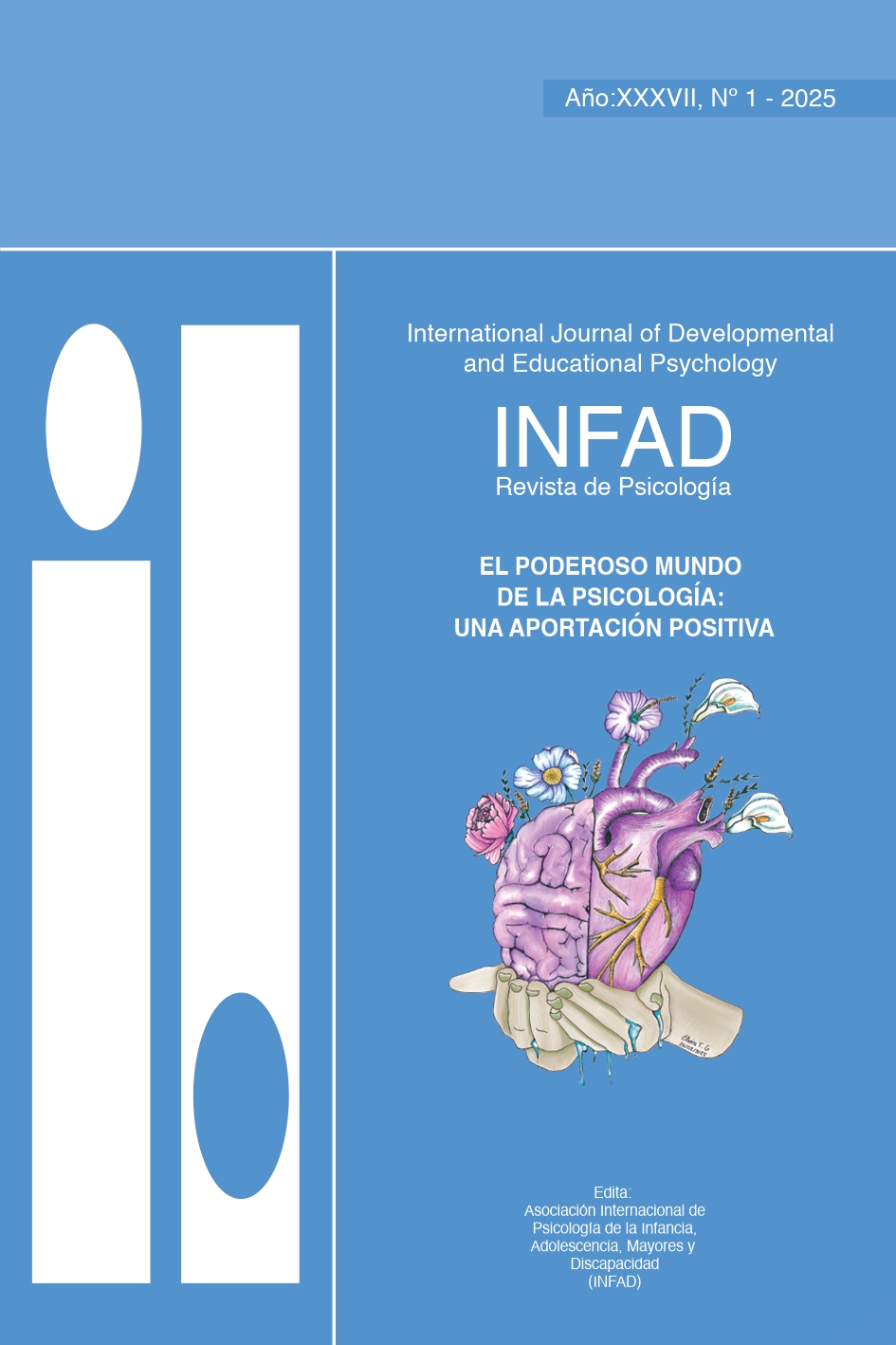Indicators of occupational psychological health and their relationship with certain work attitudes
Main Article Content
Abstract
The objective of this paper is to demonstrate the relationship between indicators of psychological health at work and specific work activities, such as job satisfaction and commitment, perceptions of justice, and work motivation. Furthermore, these indicators of psychological health at work are compared with a specific personality variable: self-monitoring. The aim is to establish the relationship between the theoretical concept of psychological health at work, measured using the EVOS-r instrument (Rodríguez-Mateo & Rodríguez-Rodríguez, 2024), and the empirical evidence obtained, thus obtaining a measure of its validity. To achieve this objective, it was decided to complete questionnaires measuring the aforementioned variables using a global sample of 696 workers, divided into six samples of workers from different sectors, such as the food industry (n=109), the civil service (n=111 and n=154), police and security forces (n=109), catering (n=126), and hospitality (n=100). The EVOS-r was used to measure indicators of psychological health at work, along with the Meyer and Allen (1997) organizational commitment questionnaire; self-monitoring was conducted using the Snyder (1974) «Self-Monitoring» survey; the Hackman and Oldham (1975) motivation questionnaire; and the Colquitt (2001) Organizational Justice Scale. The results indicate a clear relationship between the degree of perception of psychological health indicators at work and job satisfaction, the perception of fairness in organizations, and an adequate level of work motivation. In contrast, personality characteristics appear to be unrelated to indicators of psychological health at work. Thus, it seems possible to establish a relationship between the theoretical concept of psychological health at work and attitudes toward workplace well-being. The results demonstrate the importance of companies caring for psychological health, as it is closely related to job performance.
Article Details
Section

This work is licensed under a Creative Commons Attribution-NonCommercial-NoDerivatives 4.0 International License.
Attribution — You must give appropriate credit, provide a link to the license, and indicate if changes were made. You may do so in any reasonable manner, but not in any way that suggests the licensor endorses you or your use.
NonCommercial — You may not use the material for commercial purposes.
NoDerivatives — If you remix, transform, or build upon the material, you may not distribute the modified material.

This work is licensed under a Creative Commons Attribution-NonCommercial-NoDerivatives 4.0 International License
How to Cite
References
Chunga Díaz, T. O., y Escuza Pasco, M. E. (2023). La importancia de la satisfacción laboral en el ámbito profesional: una revisión sistemática. Diversitas, 19 (1), 163–181.
Costa, P. T., y McCrae, R. R. (1992). Revised NEO Personality Inventory (NEO-PI-R) and NEO Five-Factor Inventory (NEO-FFI) Professional Manual. Psychological Assessment Resources.
Goldberg, L. R. (1990). An alternative «description of personality»: The Big-Five factor structure. Journal of Personality and Social Psychology, 59 (6), 1216–1229. https://doi.org/10.1037/0022-3514.59.6.1216
Hackman, J. R., y Oldham, G. R. (1976). Motivation through the design of work: Test of a theory. Organizational Behavior and Human Performance, 16 (2), 250–279.
John, O. P., Naumann, L. P., y Soto, C. J. (2008). Paradigm shift to the integrative Big Five trait taxonomy. En O. P. John, R. W. Robins, y L. A. Pervin (Eds.), Handbook of personality: Theory and research (3rd ed., pp. 114–158). Guilford Press.
Karasek, R., y Theorell, T. (1990). Healthy Work: Stress, Productivity, and the Reconstruction of Working Life . Basic Books.
Locke, E. A. (1976). The Nature and Causes of Job Satisfaction. En M. D. Dunnette (Ed.), Handbook of Industrial and Organizational Psychology (pp. 1297–1349). Chicago: Rand McNally.
Meyer, J. P., y Allen, N. J. (1991). A three-component conceptualization of organizational commitment. Human Resource Management Review, 1 (1), 61–89.
Organización Mundial de la Salud. (2023). La salud mental en el trabajo. Recuperado de https://www.who.int/es/news-room/fact-sheets/detail/mental-health-at-work.
Rodríguez-Mateo, H. y Rodríguez-Rodríguez, R. (2024). EVOS: Validación de un instrumento de salud psicológica laboral para evaluar organizaciones saludables. Revista INFAD De Psicología. International Journal of Developmental and Educational Psychology., 2 (1), 243-249. https://doi.org/10.17060/ijodaep.2024.n1.v2.2685
Rodríguez-Trueba, J.C. y Rodríguez Mateo, H. (2018). Psicología del trabajo . Manuales universitarios de Teleformación. ULPGC.
Seligmann-Silva, E. (2011). Salud Mental Relacionada al Trabajo: abordaje integrador . Recuperado de https://cdsa.aacademica.org/000-079/207.pdf
Siegrist, J. (1996). Adverse health effects of high-effort/low-reward conditions. Journal of Occupational Health Psychology, 1 (1), 27–41.
Snyder, M. (1974). Self-monitoring of expressive behavior. Journal of Personality and Social Psychology, 30 (4), 526–537. https://doi.org/10.1037/h0037039
Snyder, M., y Gangestad, S. (1986). On the nature of self-monitoring: Matters of assessment, matters of validity. Journal of Personality and Social Psychology, 51 (1), 125–139.

